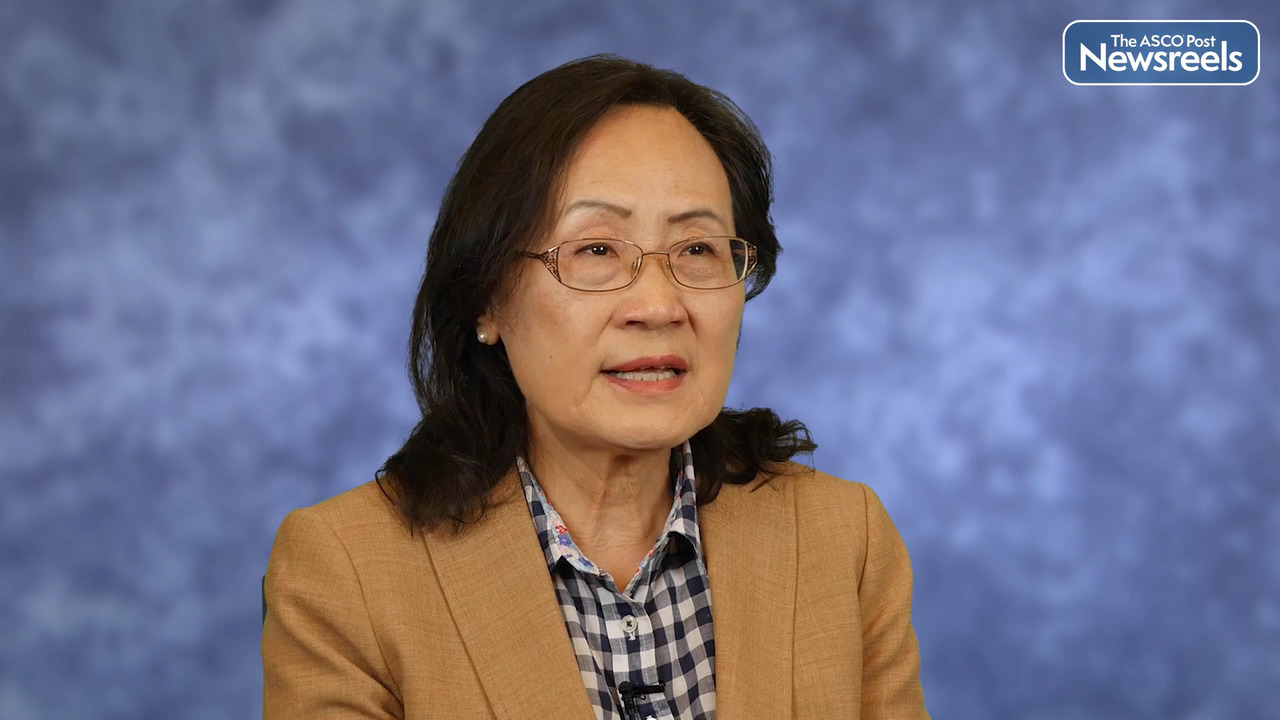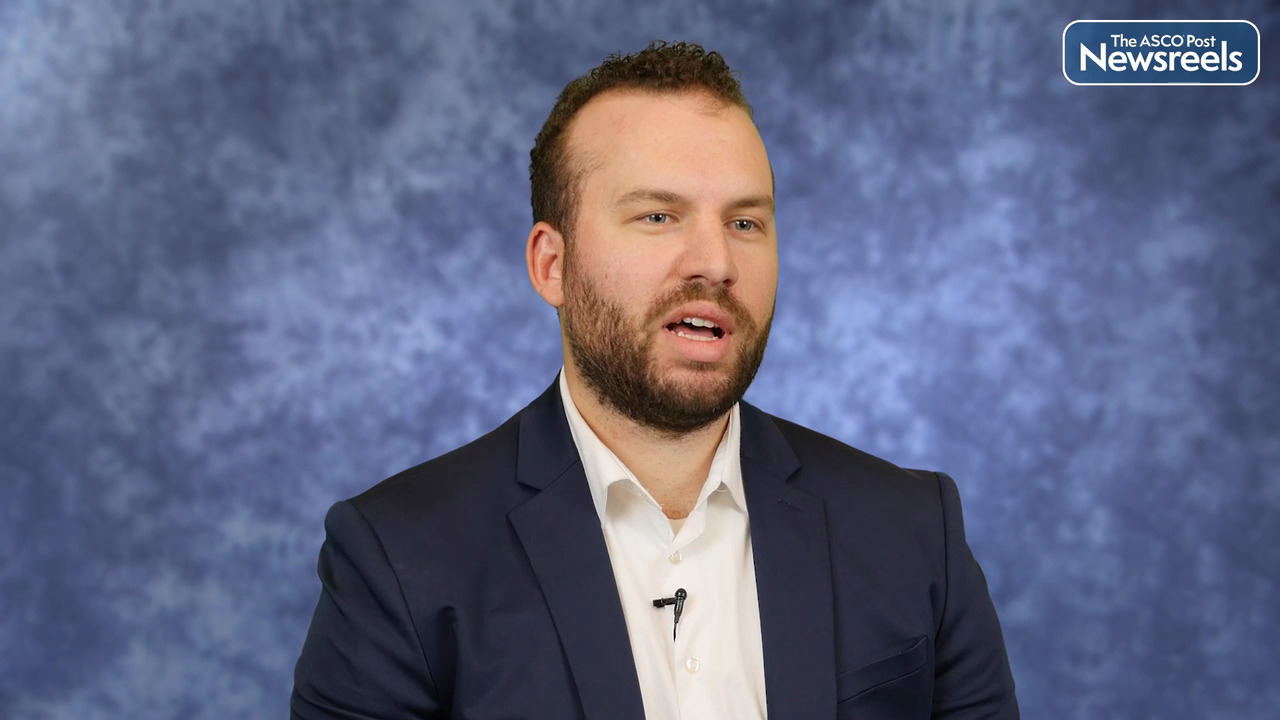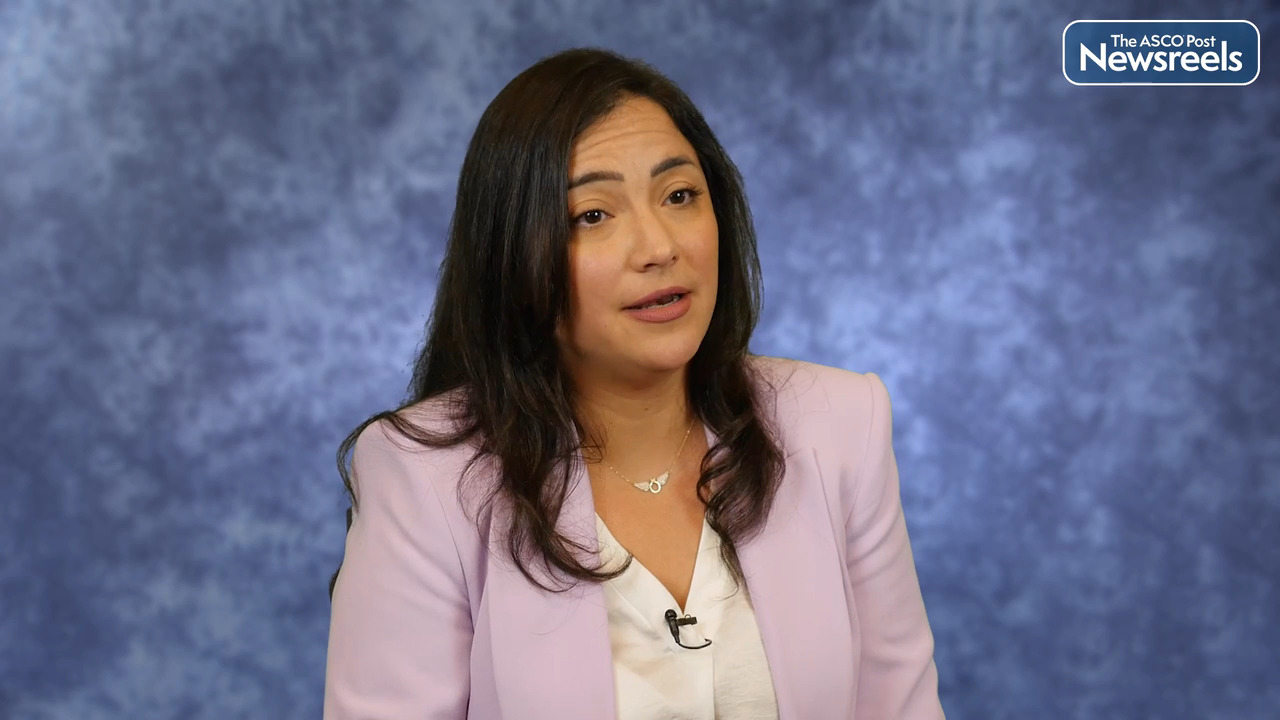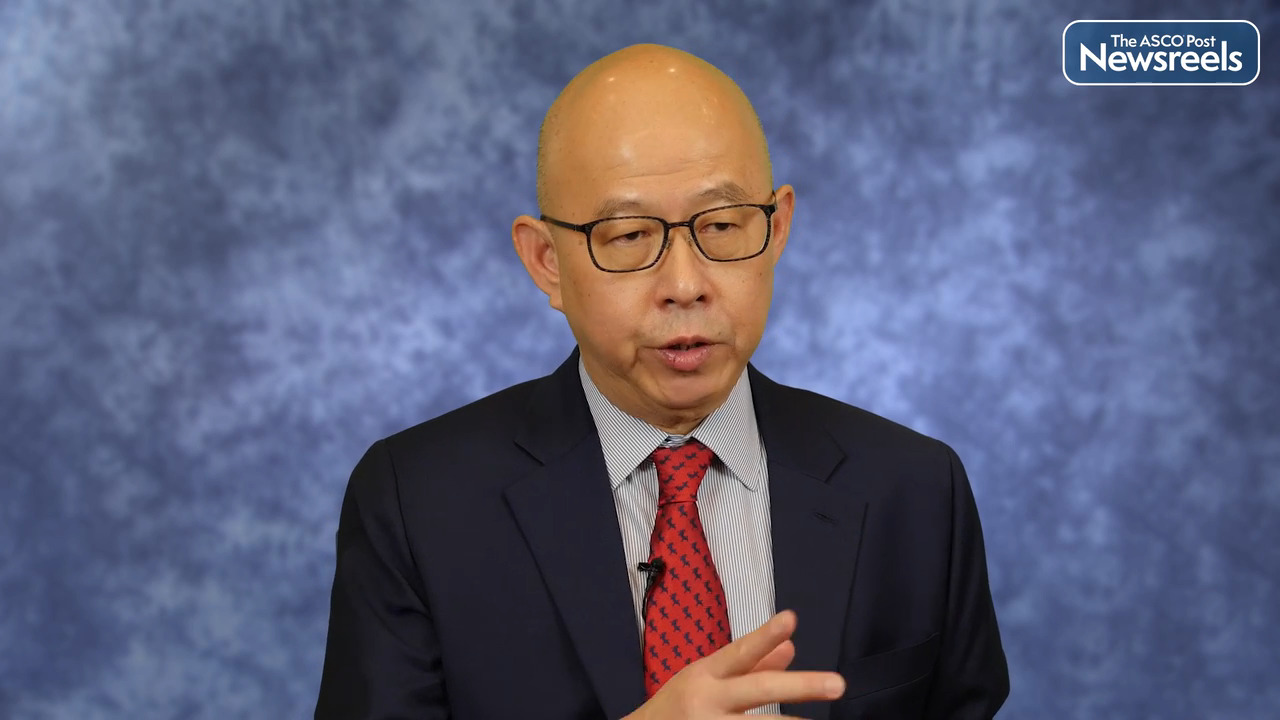Transcript
Disclaimer: This video transcript has not been proofread or edited and may contain errors.
The KEYNOTE-966 study was a randomized international phase three placebo controlled trial in advanced biliary tract cancers.
Now, advanced biliary tract cancers are a complex family of epithelial cancers arising from the biliary tree in the gallbladder, and they include intrahepatic cholangiocarcinoma, extrahepatic cholangiocarcinoma and gallbladder cancers. These are very difficult cancers to treat with poor prognosis overall, and they're actually rising in incidents worldwide, making biliary tract cancers an area of significant unmet need.
The standard treatment for biliary tract cancers for over a decade has been the combination of gemcitabine plus cisplatin chemotherapy, but with this regimen the median survival has been less than a year, and we've been in great need of new therapies. Immunotherapy with immune checkpoint inhibitors has not been very successful by itself with usually around 10% of patients or less showing a response.
In the KEYNOTE-966 study, we examined the combination of standard key chemotherapy with the gemcitabine post cisplatin regimen, along with an immune checkpoint inhibitor targeting PD-1 called pembrolizumab. And the rationale for this combination is that both gemcitabine and cisplatin can alter the immune microenvironment and increase the chances of a tumor provoking or prompting an immune response, thereby increasing the chances of eliciting an immune response with the addition of immune checkpoint inhibitor.
So with the KEYNOTE-966 study, the design included patients with advanced or unresectable or metastatic intrahepatic or extrahepatic cholangiocarcinoma or gallbladder cancer who had not had any prior systemic therapy, so patients were systemic therapy naive, and patients had to have measurable disease and adequate organ status and performance status. Patients were randomized one-to-one to either the combination with pembrolizumab plus gemcitabine and cisplatin or placebo with the same chemotherapy. And the primary endpoint of the study was overall survival with key secondary endpoints including progression-free survival and objective response rate and duration of response. Patients were stratified according to region of the world disease stage and the site of tumor within the biliary tree, either intrahepatic, extrahepatic or gallbladder location.
In KEYNOTE-966, a total of 1069 patients were randomized making the study the largest randomized trial in biliary tract cancers to date to our knowledge. Of those patients randomized, around 45% of patients were enrolled from Asian sites and around 55% of patients were enrolled from non-Asian or Western sites, making it a very broadly representative global population. Around 60% of patients had tumors arising from the intrahepatic bile duct, called intrahepatic cholangiocarcinoma, as their site of tumor and around 90% of patients had metastatic disease. Patients were well-balanced between the two treatment arms.
So on the treatment, the primary endpoint of overall survival showed a median overall survival with the pembrolizumab plus chemotherapy combination of 12.7 months, compared to 10.9 months for placebo. With a hazard ratio of 0.83 and a P value of 0.0034, which met the criteria for statistical significance and indicated that this was a positive study. And not just meeting statistical significance, we also saw clinically meaningful significance of these results with a clear separation of the survival curve starting around three months into treatment that was sustained throughout the course of the study and also clinically relevant improvements in the proportion with survival at time points of 12 and 24 months.
Survival benefit was relatively similar across key pre-specified subgroups including age and region of the world, Western versus non-Western, Asian versus non-Asian, as well as according to PD-L1 tumor expression status. The benefit seemed greatest in the subgroup with intrahepatic cholangiocarcinomas compared to extrahepatic or gallbladder, though again these were just descriptive subgroup analyses.
Progression-free survival showed a trend towards improvement in the median with median progression-free survival for the pembrolizumab plus chemo arm of 6.5 months compared to 5.6 months for placebo. This did not meet statistical significance but trended in similar to the overall survival primary endpoint.
And lastly, objective response rate was the same in both arms at 29%, but the responses were much longer in the pembrolizumab arm with median of 9.7 months for pembrolizumab plus chemo versus 6.9 months for placebo plus chemo. The safety was quite similar between the two arms overall without any unexpected safety signals. Treatment related adverse events of grade three or four in severity occurred in 70% of the pembrolizumab plus chemo arm versus 69% for the placebo plus chemo arm. So again, quite similar and discontinuation rates were identical for all study drugs between the two arms.
Immune-related toxicities requiring steroids occurred in about 9% of the pembrolizumab arm compared to 5% of the placebo arm. Again, very much in line with what we expect for pembrolizumab as monotherapy and showing no signs of any increased rate of immune-related toxicity with the combination.
So in sum, putting these data together, we found that the combination of pembrolizumab with gemcitabine and cisplatin standard chemotherapy provided a statistically significant improvement in overall survival, which was meaningful with the longer proportion of patients surviving at time points as far out as 24 months. The duration of responses was longer in the combination arm containing pembrolizumab, suggesting potential for prolonged responses with this immunotherapy addition. And the adverse event profile was as expected for all of the known drugs without significant increase from the combination arm.
So collectively, we found that the status supports the addition of pembrolizumab to standard gemcitabine and cisplatin as a potentially new treatment option for patients with untreated metastatic or unresectable biliary tract cancer.





